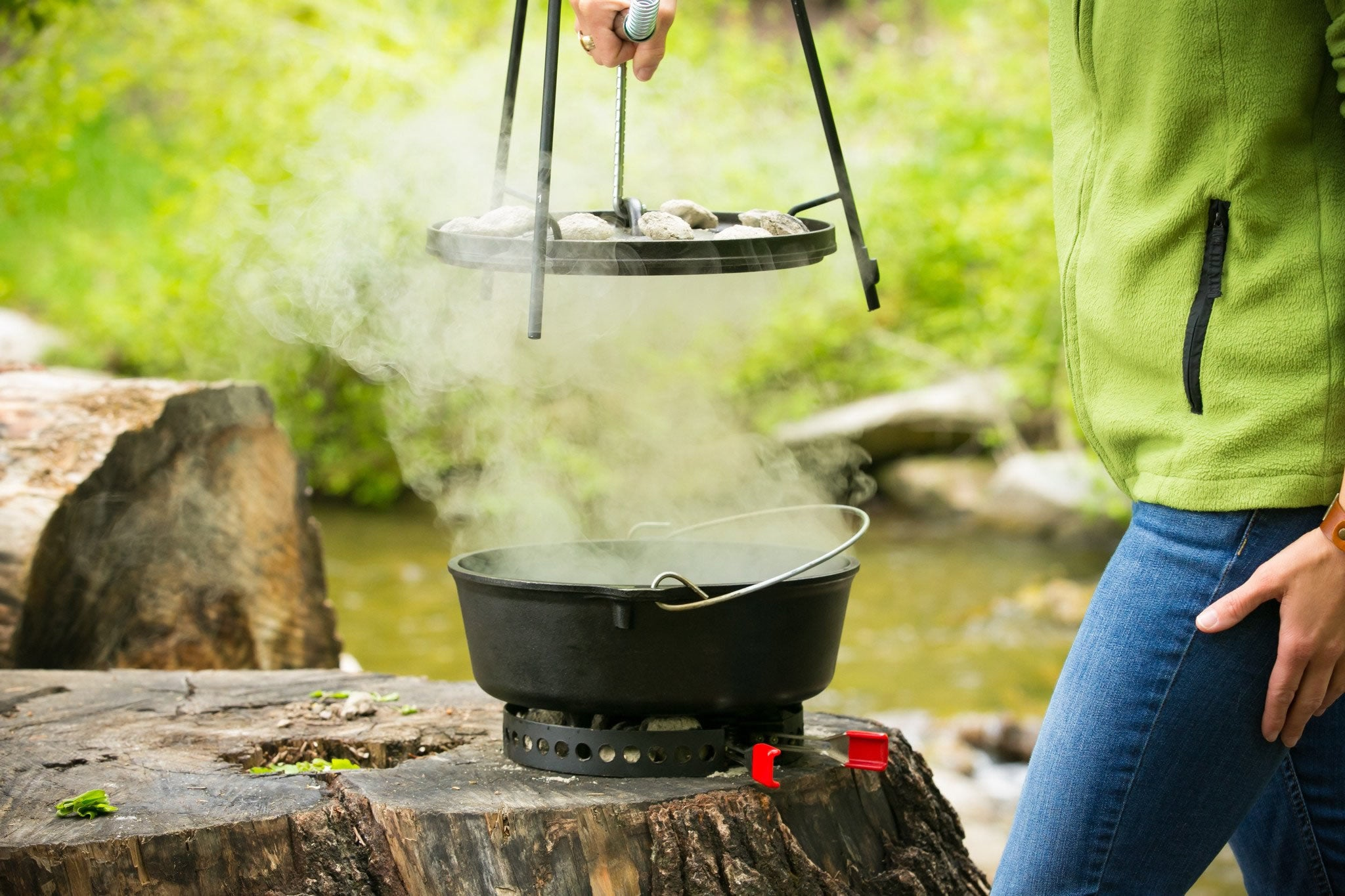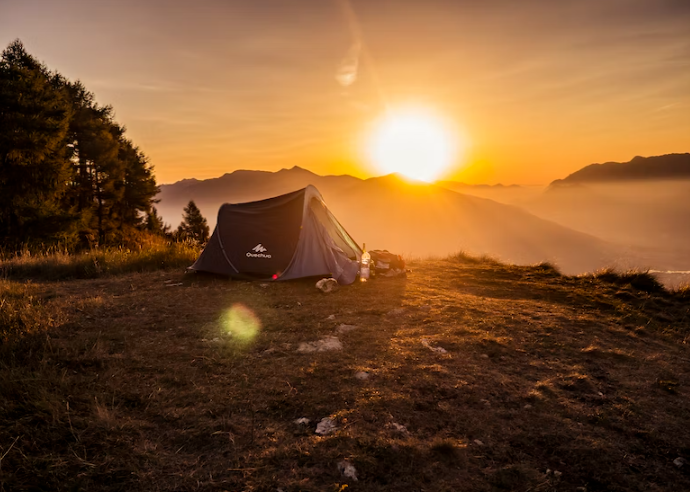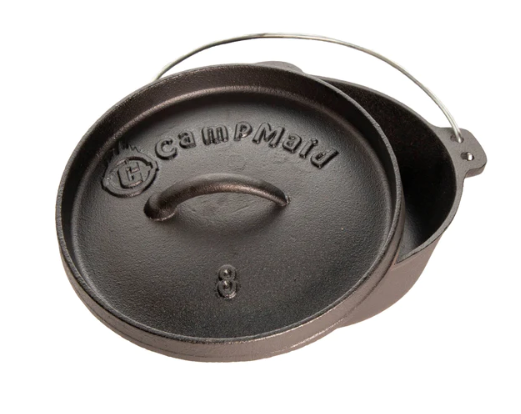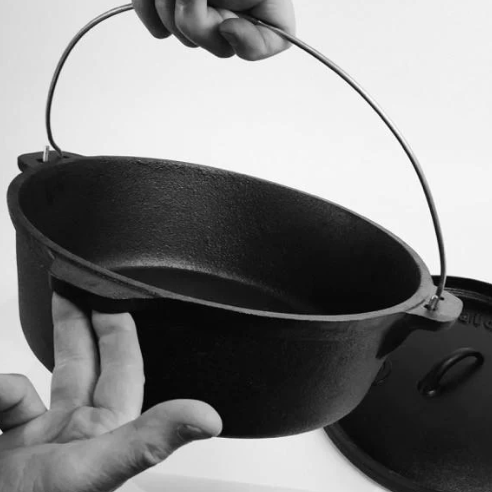
Do Campfires Attract Or Repel Wild Animals?
New campers often tend to find a sense of security in their campfire when they hear rustling around their campsite, but what exactly is it doing for you regarding the wildlife? Campfires can usually repel any unwanted visits by the local wildlife, but some, like lizards, snakes, raccoons, or bears, can sometimes ignore it completely or get attracted to it. An animal’s reaction to a campfire will depend largely on whether or not they have rabies, as well as their species.
Here’s all you need to know about animals and campfires:
Wild animals that get repelled by campfires
Many different species of wildlife can get deterred by campfires, such as rats, squirrels, skunks, coyotes, wolves, and feral dogs. Canids such as coyotes and wolves usually avoid humans, especially if they’re by themselves. However, the presence of a pack and intense hunger can empower them into making contact.
Nocturnal species usually find the light of a campfire to be too uncomfortable for their eyes—it can hamper their vision or cause them pain. Insects also get repelled by campfires due to the smoke, but depending on the bug species in your campsite, you might have to create a lot of smoke or sit very close to the fire.
Wild animals that don’t get repelled by campfires
One of the biggest concerns that campers have is encountering a bear. Bears don’t get repelled by simple campfires, and many will instead use it as a beacon to wander into your camp. However, most bears are usually just curious and are scavenging for food amongst your storage.
Raccoons are also incredibly fearless and are used to living off of garbage and food wastes around humans, so they’re comfortable near the light. Campfires can sometimes even attract snakes and lizards that are looking for a place to warm up and might hide in sleeping bags or shoes as an unwelcome surprise.
What attracts the wild animals?
Animals use their noses to find food—sustenance is every animal’s main goal, which means that they’ll stake out territory and investigate any animal and human markings. Somethings that can attract wildlife attention include:
- Urine or excrement: Animals like mountain lions and bears get attracted to the scent of urine and other excrements—stay cautious and go at least 100 yards away from your camp to take care of any bathroom needs.
- Food-related trash: Disposing of your food-related trash the wrong way can encourage wild animals to raid your camp. Get an odor-proof bag to dispose of any items with food-related scents.
- Cooking: Nothing can get an animal’s attention quite like cooking—the myriad of scents is likely to attract hungry animals. Try to cook some distance away from your main camp to reduce any chances of encountering wild animals.

How to keep animals away from your food?
One of the best cast iron camp kitchen equipment that you can use while cooking is CampMaid’s Dutch oven tools set like the Lid Holder & Serving Stand, which keeps your food covered while it’s cooking, and even after you’re done, so that your leftovers are safe from any hungry wildlife. It also helps you keep coal on top of the lid to deter curious animals or insects from inspecting the contents.
Our state-of-the-art Camping Grill Set for Outdoor Cooking can help you create delicious dishes that can elevate your camping experience. They’re super easy to clean and store away, so you won’t have to worry about lingering scents of food. Take a look at our best cast iron dutch oven set online today!
Contact us for more details.
Also in News
New campers often tend to find a sense of security in their campfire when they hear rustling around their campsite, but what exactly is it doing for you regarding the wildlife? Campfires can usually repel any unwanted visits by the local wildlife, but some, like lizards, snakes, raccoons, or bears, can sometimes ignore it completely or get attracted to it. An animal’s reaction to a campfire will depend largely on whether or not they have rabies, as well as their species.
Here’s all you need to know about animals and campfires:
Wild animals that get repelled by campfires
Many different species of wildlife can get deterred by campfires, such as rats, squirrels, skunks, coyotes, wolves, and feral dogs. Canids such as coyotes and wolves usually avoid humans, especially if they’re by themselves. However, the presence of a pack and intense hunger can empower them into making contact.
Nocturnal species usually find the light of a campfire to be too uncomfortable for their eyes—it can hamper their vision or cause them pain. Insects also get repelled by campfires due to the smoke, but depending on the bug species in your campsite, you might have to create a lot of smoke or sit very close to the fire.
Wild animals that don’t get repelled by campfires
One of the biggest concerns that campers have is encountering a bear. Bears don’t get repelled by simple campfires, and many will instead use it as a beacon to wander into your camp. However, most bears are usually just curious and are scavenging for food amongst your storage.
Raccoons are also incredibly fearless and are used to living off of garbage and food wastes around humans, so they’re comfortable near the light. Campfires can sometimes even attract snakes and lizards that are looking for a place to warm up and might hide in sleeping bags or shoes as an unwelcome surprise.
What attracts the wild animals?
Animals use their noses to find food—sustenance is every animal’s main goal, which means that they’ll stake out territory and investigate any animal and human markings. Somethings that can attract wildlife attention include:
- Urine or excrement: Animals like mountain lions and bears get attracted to the scent of urine and other excrements—stay cautious and go at least 100 yards away from your camp to take care of any bathroom needs.
- Food-related trash: Disposing of your food-related trash the wrong way can encourage wild animals to raid your camp. Get an odor-proof bag to dispose of any items with food-related scents.
- Cooking: Nothing can get an animal’s attention quite like cooking—the myriad of scents is likely to attract hungry animals. Try to cook some distance away from your main camp to reduce any chances of encountering wild animals.

How to keep animals away from your food?
One of the best cast iron camp kitchen equipment that you can use while cooking is CampMaid’s Dutch oven tools set like the Lid Holder & Serving Stand, which keeps your food covered while it’s cooking, and even after you’re done, so that your leftovers are safe from any hungry wildlife. It also helps you keep coal on top of the lid to deter curious animals or insects from inspecting the contents.
Our state-of-the-art Camping Grill Set for Outdoor Cooking can help you create delicious dishes that can elevate your camping experience. They’re super easy to clean and store away, so you won’t have to worry about lingering scents of food. Take a look at our best cast iron dutch oven set online today!
Contact us for more details.

4 Sustainable Camping Gear Essentials
Are you a camping enthusiast? Here are four sustainable camping gear essentials that you should consider investing in.
New campers often tend to find a sense of security in their campfire when they hear rustling around their campsite, but what exactly is it doing for you regarding the wildlife? Campfires can usually repel any unwanted visits by the local wildlife, but some, like lizards, snakes, raccoons, or bears, can sometimes ignore it completely or get attracted to it. An animal’s reaction to a campfire will depend largely on whether or not they have rabies, as well as their species.
Here’s all you need to know about animals and campfires:
Wild animals that get repelled by campfires
Many different species of wildlife can get deterred by campfires, such as rats, squirrels, skunks, coyotes, wolves, and feral dogs. Canids such as coyotes and wolves usually avoid humans, especially if they’re by themselves. However, the presence of a pack and intense hunger can empower them into making contact.
Nocturnal species usually find the light of a campfire to be too uncomfortable for their eyes—it can hamper their vision or cause them pain. Insects also get repelled by campfires due to the smoke, but depending on the bug species in your campsite, you might have to create a lot of smoke or sit very close to the fire.
Wild animals that don’t get repelled by campfires
One of the biggest concerns that campers have is encountering a bear. Bears don’t get repelled by simple campfires, and many will instead use it as a beacon to wander into your camp. However, most bears are usually just curious and are scavenging for food amongst your storage.
Raccoons are also incredibly fearless and are used to living off of garbage and food wastes around humans, so they’re comfortable near the light. Campfires can sometimes even attract snakes and lizards that are looking for a place to warm up and might hide in sleeping bags or shoes as an unwelcome surprise.
What attracts the wild animals?
Animals use their noses to find food—sustenance is every animal’s main goal, which means that they’ll stake out territory and investigate any animal and human markings. Somethings that can attract wildlife attention include:
- Urine or excrement: Animals like mountain lions and bears get attracted to the scent of urine and other excrements—stay cautious and go at least 100 yards away from your camp to take care of any bathroom needs.
- Food-related trash: Disposing of your food-related trash the wrong way can encourage wild animals to raid your camp. Get an odor-proof bag to dispose of any items with food-related scents.
- Cooking: Nothing can get an animal’s attention quite like cooking—the myriad of scents is likely to attract hungry animals. Try to cook some distance away from your main camp to reduce any chances of encountering wild animals.

How to keep animals away from your food?
One of the best cast iron camp kitchen equipment that you can use while cooking is CampMaid’s Dutch oven tools set like the Lid Holder & Serving Stand, which keeps your food covered while it’s cooking, and even after you’re done, so that your leftovers are safe from any hungry wildlife. It also helps you keep coal on top of the lid to deter curious animals or insects from inspecting the contents.
Our state-of-the-art Camping Grill Set for Outdoor Cooking can help you create delicious dishes that can elevate your camping experience. They’re super easy to clean and store away, so you won’t have to worry about lingering scents of food. Take a look at our best cast iron dutch oven set online today!
Contact us for more details.

Choose the Best Dutch Oven: 3 Features to Consider
Are you looking for the best Dutch oven sets online? Here are three features that you should consider when buying one.
New campers often tend to find a sense of security in their campfire when they hear rustling around their campsite, but what exactly is it doing for you regarding the wildlife? Campfires can usually repel any unwanted visits by the local wildlife, but some, like lizards, snakes, raccoons, or bears, can sometimes ignore it completely or get attracted to it. An animal’s reaction to a campfire will depend largely on whether or not they have rabies, as well as their species.
Here’s all you need to know about animals and campfires:
Wild animals that get repelled by campfires
Many different species of wildlife can get deterred by campfires, such as rats, squirrels, skunks, coyotes, wolves, and feral dogs. Canids such as coyotes and wolves usually avoid humans, especially if they’re by themselves. However, the presence of a pack and intense hunger can empower them into making contact.
Nocturnal species usually find the light of a campfire to be too uncomfortable for their eyes—it can hamper their vision or cause them pain. Insects also get repelled by campfires due to the smoke, but depending on the bug species in your campsite, you might have to create a lot of smoke or sit very close to the fire.
Wild animals that don’t get repelled by campfires
One of the biggest concerns that campers have is encountering a bear. Bears don’t get repelled by simple campfires, and many will instead use it as a beacon to wander into your camp. However, most bears are usually just curious and are scavenging for food amongst your storage.
Raccoons are also incredibly fearless and are used to living off of garbage and food wastes around humans, so they’re comfortable near the light. Campfires can sometimes even attract snakes and lizards that are looking for a place to warm up and might hide in sleeping bags or shoes as an unwelcome surprise.
What attracts the wild animals?
Animals use their noses to find food—sustenance is every animal’s main goal, which means that they’ll stake out territory and investigate any animal and human markings. Somethings that can attract wildlife attention include:
- Urine or excrement: Animals like mountain lions and bears get attracted to the scent of urine and other excrements—stay cautious and go at least 100 yards away from your camp to take care of any bathroom needs.
- Food-related trash: Disposing of your food-related trash the wrong way can encourage wild animals to raid your camp. Get an odor-proof bag to dispose of any items with food-related scents.
- Cooking: Nothing can get an animal’s attention quite like cooking—the myriad of scents is likely to attract hungry animals. Try to cook some distance away from your main camp to reduce any chances of encountering wild animals.

How to keep animals away from your food?
One of the best cast iron camp kitchen equipment that you can use while cooking is CampMaid’s Dutch oven tools set like the Lid Holder & Serving Stand, which keeps your food covered while it’s cooking, and even after you’re done, so that your leftovers are safe from any hungry wildlife. It also helps you keep coal on top of the lid to deter curious animals or insects from inspecting the contents.
Our state-of-the-art Camping Grill Set for Outdoor Cooking can help you create delicious dishes that can elevate your camping experience. They’re super easy to clean and store away, so you won’t have to worry about lingering scents of food. Take a look at our best cast iron dutch oven set online today!
Contact us for more details.

How to Cook with a Dutch Oven while Camping
Are you taking CampMaid’s Dutch oven on your next camping trip? Here’s how you can cook on it.
